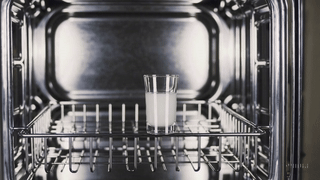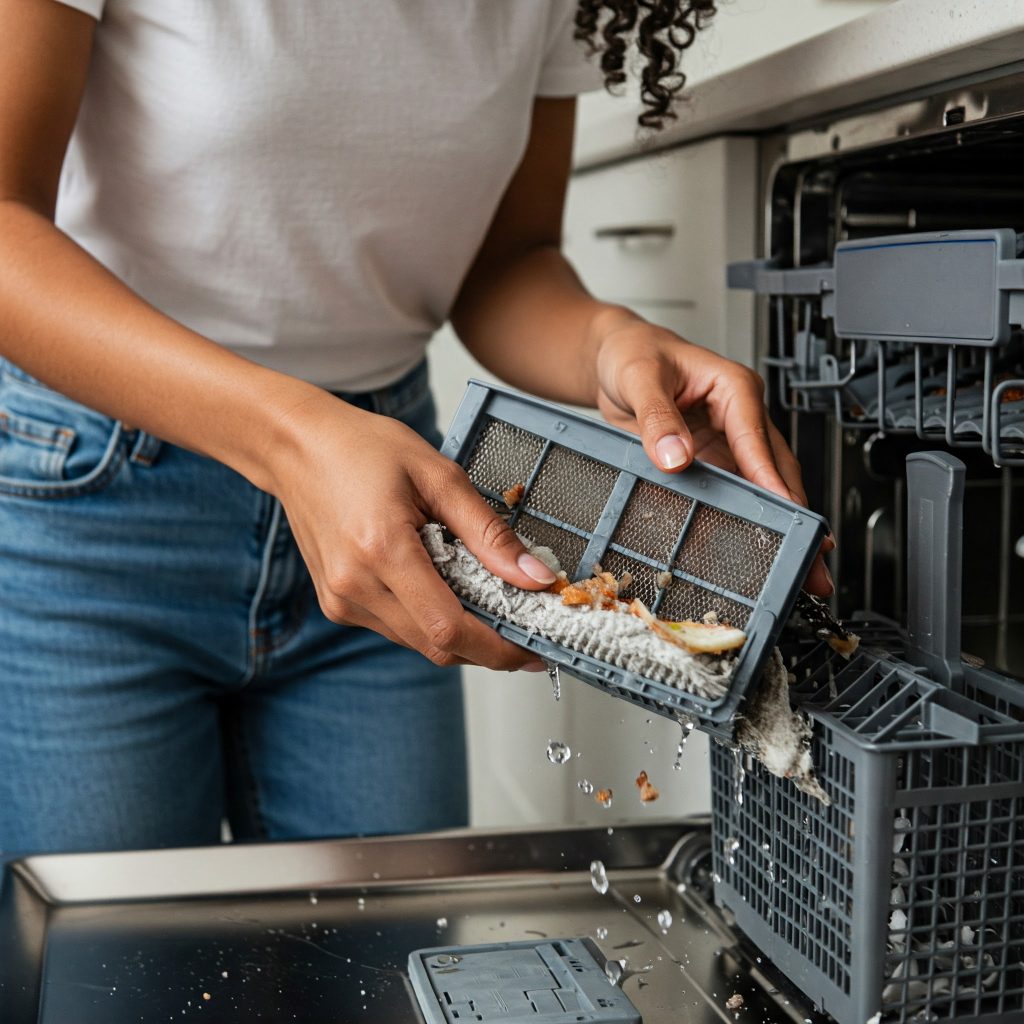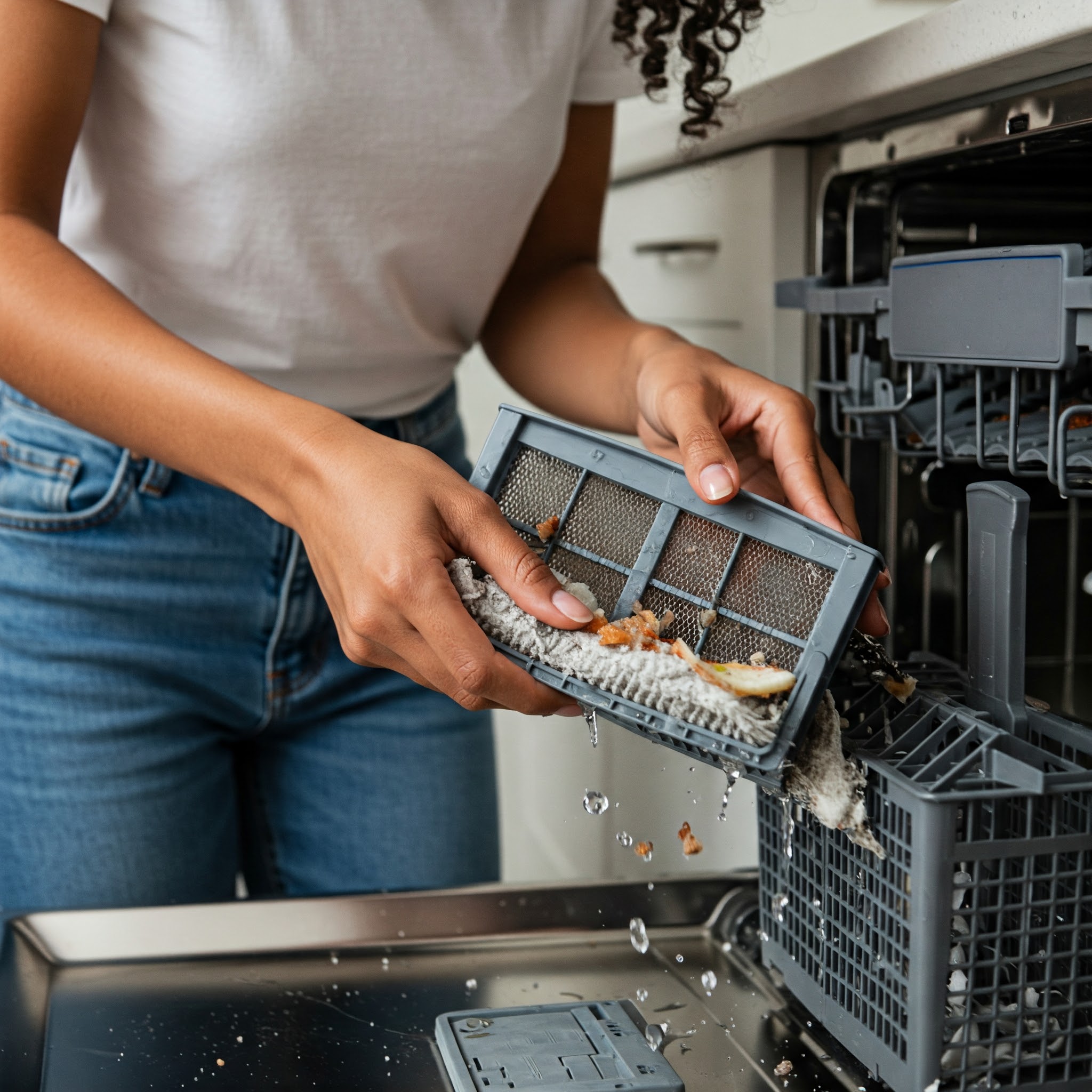Boost Your Dishwasher’s Performance Naturally with Vinegar!
Introduction
Is your dishwasher not cleaning as efficiently as it used to? Are you noticing a musty odor or spots on your dishes? You might be dealing with grease buildup, limescale, or soap residue. Instead of reaching for harsh chemicals, there’s a simple, natural, and cost-effective solution—white vinegar!
Vinegar is an eco-friendly powerhouse that can clean and deodorize your dishwasher while ensuring sparkling clean dishes. Let’s dive into why and how you should use vinegar to maintain your dishwasher effortlessly.
Why Use Vinegar in Your Dishwasher?
Vinegar is more than just a kitchen staple; it’s a powerful natural cleaner that can work wonders for your dishwasher. Here’s why it’s a great choice:
1. Natural Degreaser and Descaler
Vinegar contains acetic acid, which helps break down grease, food residue, and limescale deposits that accumulate over time.
2. Eliminates Odors
A smelly dishwasher is often caused by trapped food particles and bacteria. Vinegar’s antibacterial properties neutralize odors, leaving your dishwasher fresh.
3. Safe and Non-Toxic
Unlike commercial dishwasher cleaners that may contain harsh chemicals, vinegar is safe for your family and the environment. It’s a great alternative, especially for households with kids and pets.
4. Cost-Effective and Readily Available
You probably already have white vinegar in your pantry! Instead of spending money on expensive cleaners, vinegar offers an affordable and effective solution.
How to Clean Your Dishwasher with
Vinegar
Follow these simple steps to deep clean your dishwasher and keep it running efficiently.
Step 1: Empty the Dishwasher
Before cleaning, remove all dishes, utensils, and racks to ensure the vinegar reaches all areas.
Step 2: Check and Clean the Drain Filter
- Pull out the bottom rack and locate the drain filter at the bottom of the dishwasher.
- Remove any food debris or gunk clogging the filter to improve drainage.

Step 3: Place Vinegar in the Dishwasher
- Pour one cup of white vinegar into a dishwasher-safe bowl or measuring cup.
- Place it on the top rack of your dishwasher.
Step 4: Run a Hot Cycle
- Select the hottest setting and run a full wash cycle.
- The vinegar will circulate through the dishwasher, removing buildup, odors, and stains.
Step 5: Wipe Down Interior Surfaces (Optional)
- Once the cycle is complete, use a clean cloth to wipe down the inside of the dishwasher, especially around the door edges and gasket.
Additional Dishwasher Cleaning Tips
1. Baking Soda for Extra Freshness
After the vinegar cycle, sprinkle one cup of baking soda across the bottom of the dishwasher and run a short hot cycle. This helps absorb odors and gives an extra shine to the interior.
2. Clean the Spray Arms
Clogged spray arms can reduce water flow, affecting the dishwasher’s cleaning performance. Remove and rinse them under warm water to clear any blockages.
3. Use Vinegar Once a Month
To maintain efficiency, deep clean your dishwasher with vinegar once a month.
4. Avoid Using Vinegar with Rubber Seals
Frequent use of vinegar can degrade rubber parts over time. If your dishwasher has rubber gaskets, consider using vinegar occasionally rather than weekly.
Common Myths About Using Vinegar in Dishwashers
❌ Myth: Vinegar is too harsh for dishwashers.
✅ Truth: White vinegar is mild and safe for most dishwashers when used occasionally.
❌ Myth: Vinegar can damage stainless steel interiors.
✅ Truth: Vinegar is safe for stainless steel but should not be used excessively or left sitting in the dishwasher for long periods.
❌ Myth: You can mix vinegar and baking soda in the same cycle.
✅ Truth: While both are great cleaners, mixing them together in the same cycle neutralizes their effectiveness. Use them separately for the best results.
Frequently Asked Questions (FAQs)
1. Can I use apple cider vinegar instead of white vinegar?
Yes, but white vinegar is preferred because it is clear and doesn’t leave residue or odors. Apple cider vinegar might stain or leave a slight smell.
2. How often should I clean my dishwasher with vinegar?
For optimal performance, clean your dishwasher with vinegar once a month.
3. Will vinegar harm my dishwasher’s rubber seals?
Over time, excessive vinegar exposure can weaken rubber seals. Use it in moderation and avoid soaking parts directly.
4. Can I mix vinegar with my regular dishwasher detergent?
No. Vinegar and detergent may counteract each other, reducing their effectiveness. Use vinegar separately.
5. What if my dishwasher still has an odor after using vinegar?
Try sprinkling baking soda on the bottom of the dishwasher and running a short cycle. Also, check for trapped food particles in the filter.
6. Can I use vinegar in every dishwasher cycle?
No. Frequent use may cause wear on certain components. Monthly cleaning is ideal.
Conclusion
Vinegar is a simple, natural, and effective way to clean and maintain your dishwasher. With its grease-cutting, odor-fighting, and limescale-removing properties, it’s a budget-friendly alternative to commercial cleaners.
By incorporating this eco-friendly dishwasher hack into your routine, you’ll enjoy sparkling clean dishes and a fresher appliance—all while saving money and reducing chemical exposure in your home!
Try it today and see the difference!
Want More Cleaning Hacks?
Check out our other eco-friendly cleaning tips here!
For more in-depth dishwasher maintenance tips, check out Easy Dishwasher Hacks – For Cleaner Dishes and a Longer Lasting Machine


Leave a Reply